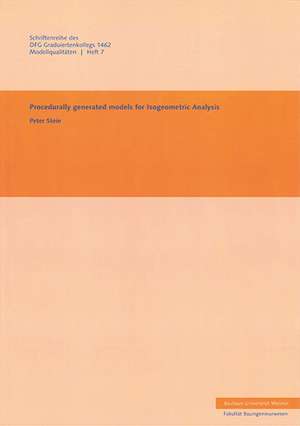Procedurally generated models for Isogeometric Analysis
Autor Peter Steinde Limba Germană Paperback – 28 feb 2013
Preț: 109.24 lei
Preț vechi: 136.55 lei
-20% Nou
Puncte Express: 164
Preț estimativ în valută:
20.91€ • 21.57$ • 17.69£
20.91€ • 21.57$ • 17.69£
Carte indisponibilă temporar
Doresc să fiu notificat când acest titlu va fi disponibil:
Se trimite...
Preluare comenzi: 021 569.72.76
Specificații
ISBN-13: 9783957731012
ISBN-10: 3957731011
Pagini: 74
Ilustrații: Zahlreiche Abbildungen
Dimensiuni: 212 x 299 x 10 mm
Greutate: 0.26 kg
Editura: Bauhaus-Universität
ISBN-10: 3957731011
Pagini: 74
Ilustrații: Zahlreiche Abbildungen
Dimensiuni: 212 x 299 x 10 mm
Greutate: 0.26 kg
Editura: Bauhaus-Universität
